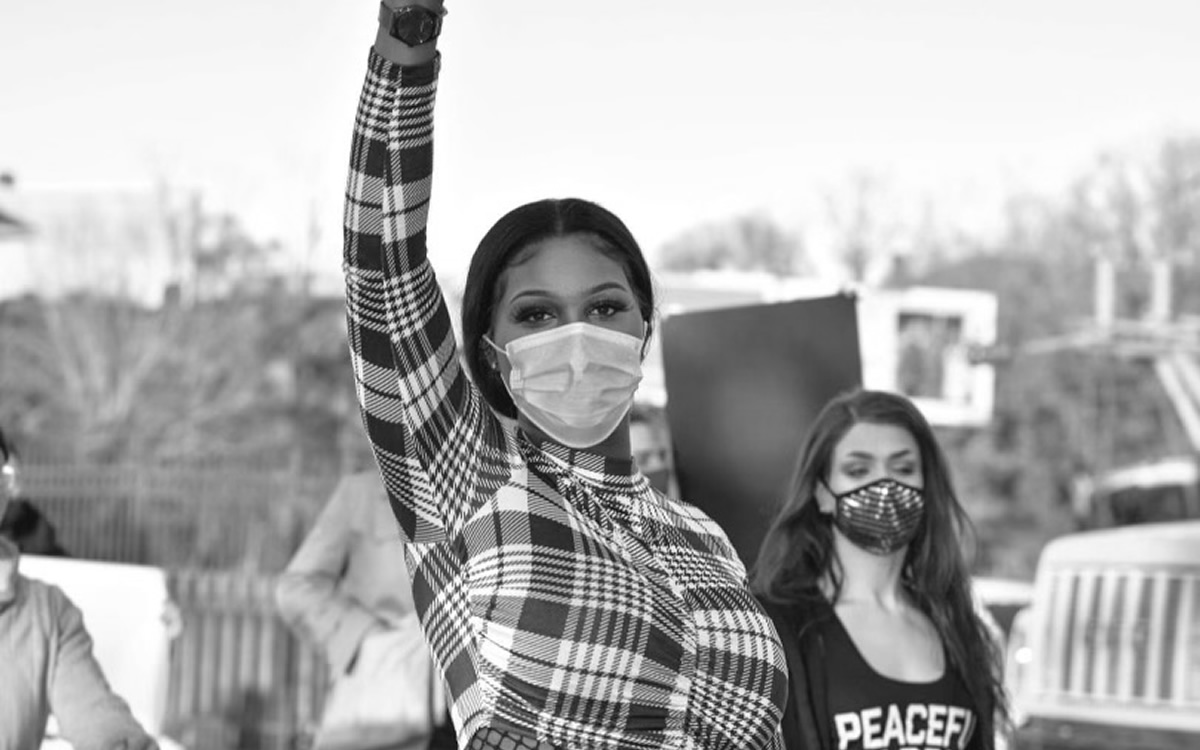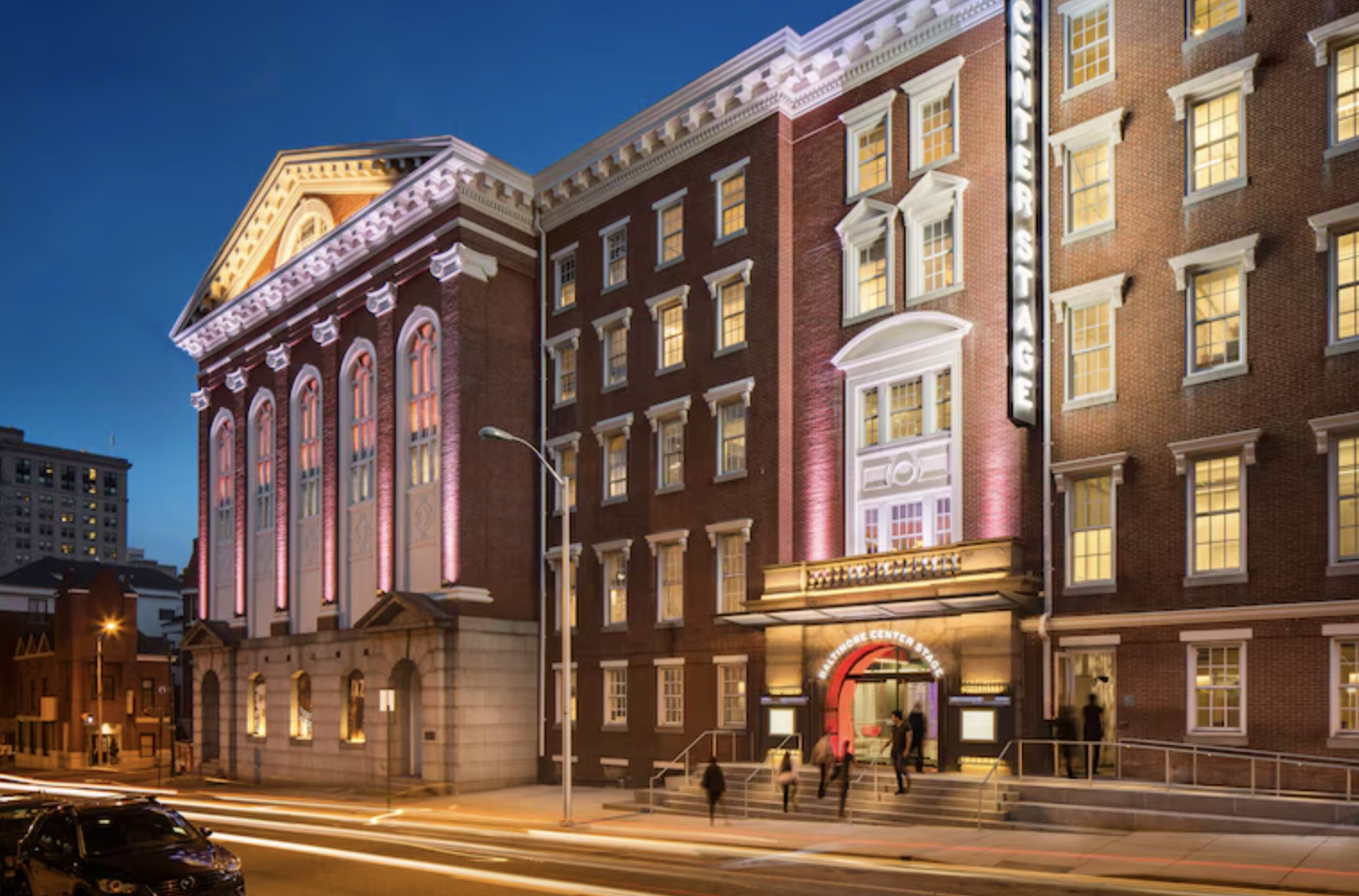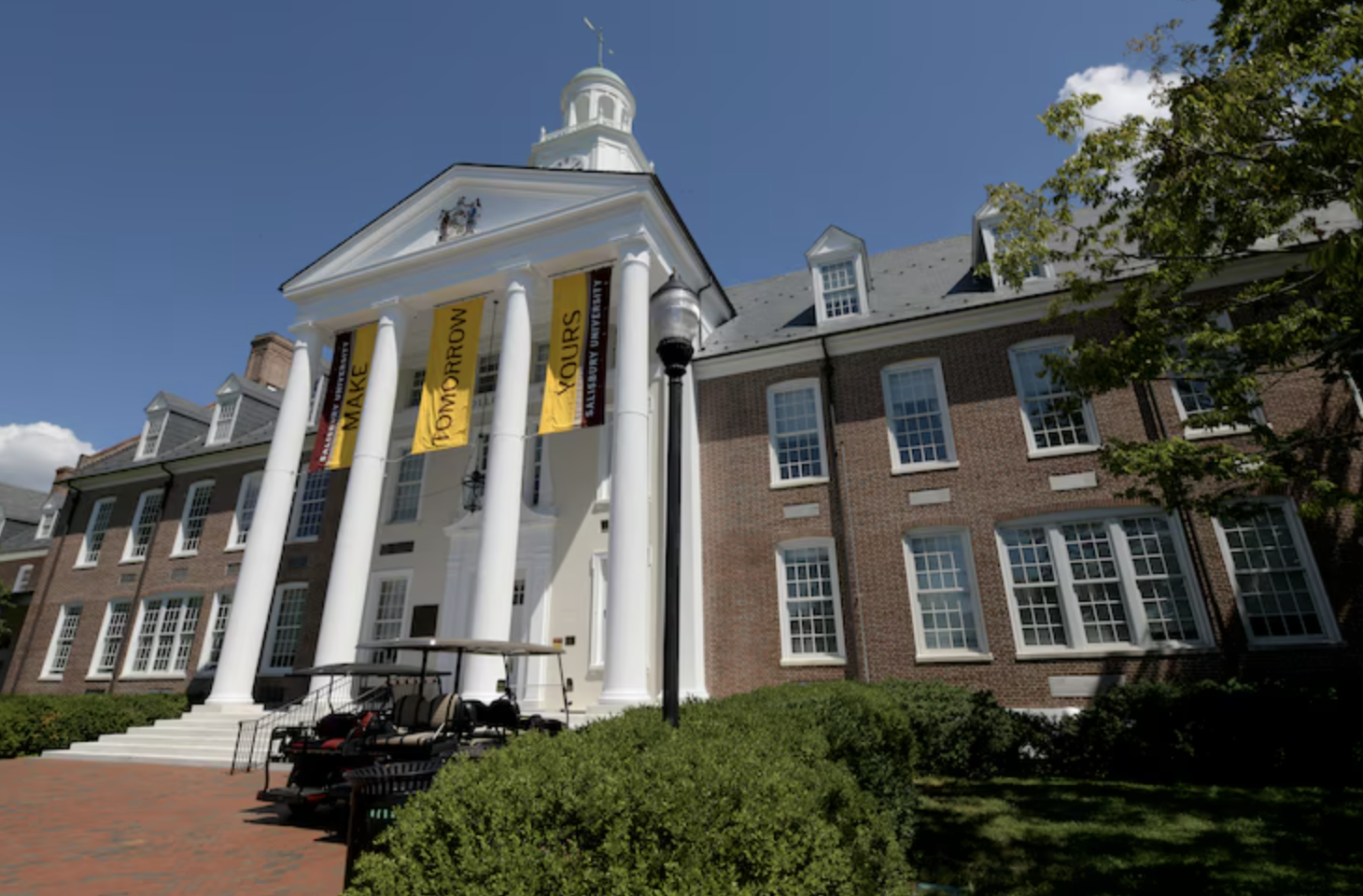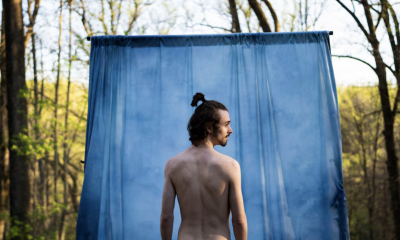Baltimore
Trans Day of Remembrance a time to celebrate life
New coalition working with Black trans-led orgs to end violence

Communities around the country gather to honor Trans Day of Remembrance (TDOR) on Nov. 20. Gwendolyn Ann Smith, a trans activist, created TDOR as a vigil for Rita Hester, a Black trans woman who was murdered in 1998. Since 1999, TDOR has become a national memorial to those whose lives were stolen from them because of transphobia and anti-trans violence.
Local activist, community leader, and founder of Baltimore Safe Haven, Iya Dammons, is preparing for the day with a week of activities that honor the trans community’s fight against violence while also paying homage to victims who were failed by the systems that should have protected them from their murderers.
“We will read off the names and have a few youth, community members and advocates step up and share stories of their loved ones who have paved the way,” Dammons said.
Dammons, a Black trans woman and Washington, D.C. native, is no stranger to the uphill struggle of her brothers and sisters in the Baltimore-Washington metro area trans community. At different times during her life, Dammons battled homelessness and turned to sex work to support herself. Dammons’s own experience navigating the tumultuous waters of life fuels her desire to help her community.
“I am a reflection of the people that I work with,” Dammons said.
A 2021 Williams Institute study found that trans people over the age of 16 are victimized four times more often than cisgender people and have higher rates of violent victimization.
One of Baltimore Safe Haven’s driving forces is increasing community awareness of what anti-trans violence looks like for those who are still alive and fighting for equity and justice.
“Sometimes we get so caught up with remembering people that we do not tell our own community members that we appreciate you, but we want you to be vigilant and mindful that harm can happen to you at anytime,” Dammons said.
For Dammons, TDOR is not just about remembering loved ones but also acknowledging that anti-trans violence can happen to her.
“I know that the worst can happen anyday to myself. So I’m sharing space with those other community members to let them know they’re not alone and we stand together in solidarity,” Dammons said.
Elle Moxley, a Black trans woman and founder of the Marsha P. Johnson Institute, echoes Dammons’s plea to remember, protect, and cherish trans lives.
This month, the Marsha P. Johnson Institute (MPJI) will launch its new coalition that works with Black trans-led organizations to end anti-trans violence, specifically against Black trans women, and improve trans people’s lives through public policy and equity.
The coalition will bring organizations together from underserved areas of the country like the Midwest and Deep South, which are traditionally conservative areas that have higher rates of anti-trans violence.
“As violence continues to be something that is a pattern for this country, we know that our efforts to build power will probably be the only efforts to end that violence,” Moxley said.
Both Dammons and Moxley are targeting the structures that perpetuate anti-trans violence in their activism.
“We’re not just reporting on the names of those who have been murdered, that we’re not just reporting on vigilante violence, that we actually are doing our work to provide solutions to ending that violence,” Moxley said.
The MPJI’s coalition will support numerous events and outreach efforts, including advocacy days, legislative days, and healing retreats.
In Washington, D.C., Dammons is starting a new Safe Haven chapter.
“We’re looking at a building now to establish a housing program for 18 to 24 year olds,” Dammons said.
Like Dammons, Moxley sees TDOR as an appreciation for life and the ability to be a voice for those whose voices were unfairly silenced.
“This is a time of commemoration and a time of owing the fight for our lives together,” Moxley said. “TDOR for me means that I am still alive, that I’m still here, and that my name is not on a list when it could have easily been based on the things that I’ve experienced and survived.”
Safe Haven will hold its TDOR remembrance ceremony at 5 p.m. on Nov. 20 at 401 N. Howard St. in Baltimore. There will be a Trans Day of Remembrance brunch, “We will not be erased,” on Saturday, Nov. 19, 11:30 a.m. at Hillcrest Heights Community Center at 2300 Oxon Run Dr., Oxon Hill, Md. Tickets are free but you must register at the event’s Eventbrite page.
Cake Society and MULUSA Rainbow Visibility Platform is hosting a Trans Day of Remembrance Brunch at 11 a.m. on Nov. 20 at 2771 Hartland Road, Falls Church, Va. The event is free, but register to attend at the event’s Eventbrite page.
Baltimore
Baltimore Center Stage refuses to comply with federal anti-DEI guidelines for funding
National Endowment for the Arts has eliminated Challenge America grant program

By WESLEY CASE | The National Endowment for the Arts announced last month new guidelines and the elimination of Challenge America, a grant program that supports underserved groups and communities — moves that falls in line with President Donald Trump’s plan to reshape federal arts policy.
Now, Baltimore Center Stage, Maryland’s state theater, says it will refuse to comply with the NEA’s new guidelines — which state that applicants “will not operate any programs promoting ‘diversity, equity, and inclusion’” or “gender ideology” — at the cost of its own potential federal funding in the future.
Under the new guidelines, the NEA is encouraging applicants to create projects that honor the upcoming 250th anniversary of the country’s adoption of the Declaration of Independence.
The rest of this article can be read on the Baltimore Banner’s website.
Baltimore
Baltimore Safe Haven announces expanded services in new building
LGBTQ group provides housing, health, legal, other programs

The LGBTQ community services organization Baltimore Safe Haven announced it intends to expand its services in a recently acquired building that it’s currently renovating at 806 North Collington Avenue near the Johns Hopkins Hospital.
“The new facility, named the Mary Lynn Washington Building and the Harry and Jeanette Weinberg Foundation Community Hub and Resource Center, is set to open soon, marking a significant milestone in our ongoing mission to create safe and inclusive spaces for all,” a statement released by the group on Dec. 30 says.
“The expansion would not have been possible without the generous support and commitment of our community donors,” the statement says.
A report by Baltimore’s WMAR 2 TV news says the building’s rooms will accommodate two dozen people “who need transitional or permanent housing and will include clinical resources under the same roof.”
The TV news report says Baltimore Safe Haven’s founder and CEO, Iya Dammons, completed the purchase of the building over the Christmas weekend but neither the news report nor the Safe Haven statement disclosed the building’s purchase price.
“We extend our deepest gratitude to [Maryland State] Senator Mary Washington, Congressman Kweisi Mfume, Mayor Brandon Scott, Borealis Philanthropy, the Astraea Foundation, The Harry and Jeanette Weinberg Foundation, MOHS, COC, and MDH,” the statement says. “Their unwavering support has been instrumental in bringing this vision to life,” it says.
“The new community hub will serve as a one-stop resource center, providing expanded clinic services in collaboration with the University of Maryland, including mental health and wellness programming,” according to the statement.
A separate statement on its website says Dammons, a transgender rights activist, founded Baltimore Safe Haven in 2018. The statement says the group has previously expanded its services since its founding to provide housing services for members of the LGBTQ community facing homelessness and housing insecurity.
“The organization has also developed a wide range of programs and services focused on mental health support, physical health coordination, workforce development, legal support, advocacy, and community building.”
In July 2023, Safe Haven opened a D.C. office and drop-in center at 331 H St., N.E. that Dammons said would seek to provide services for the LGBTQ community, especially people in need, like the services provided in Baltimore.
Baltimore
5 more Salisbury students charged after man said he was lured to apartment attack
Suspects allegedly targeted victim on Grindr

By CODY BOTELER | Five more Salisbury University students have been charged in an alleged attack where a man said he was lured into an apartment and punched, kicked, and spat on because of his “sexual preferences,” the Salisbury Police Department said Thursday afternoon.
The latest charges come after seven students were arrested earlier in the week, in an incident law enforcement officials are investigating as a hate crime.
The rest of this article can be read on the Baltimore Banner’s website.
-

 Federal Government3 days ago
Federal Government3 days agoHHS to retire 988 crisis lifeline for LGBTQ youth
-

 Opinions4 days ago
Opinions4 days agoDavid Hogg’s arrogant, self-indulgent stunt
-

 District of Columbia3 days ago
District of Columbia3 days agoD.C. police seek help in identifying suspect in anti-gay threats case
-

 Virginia4 days ago
Virginia4 days agoGay talk show host wins GOP nom for Va. lieutenant guv










